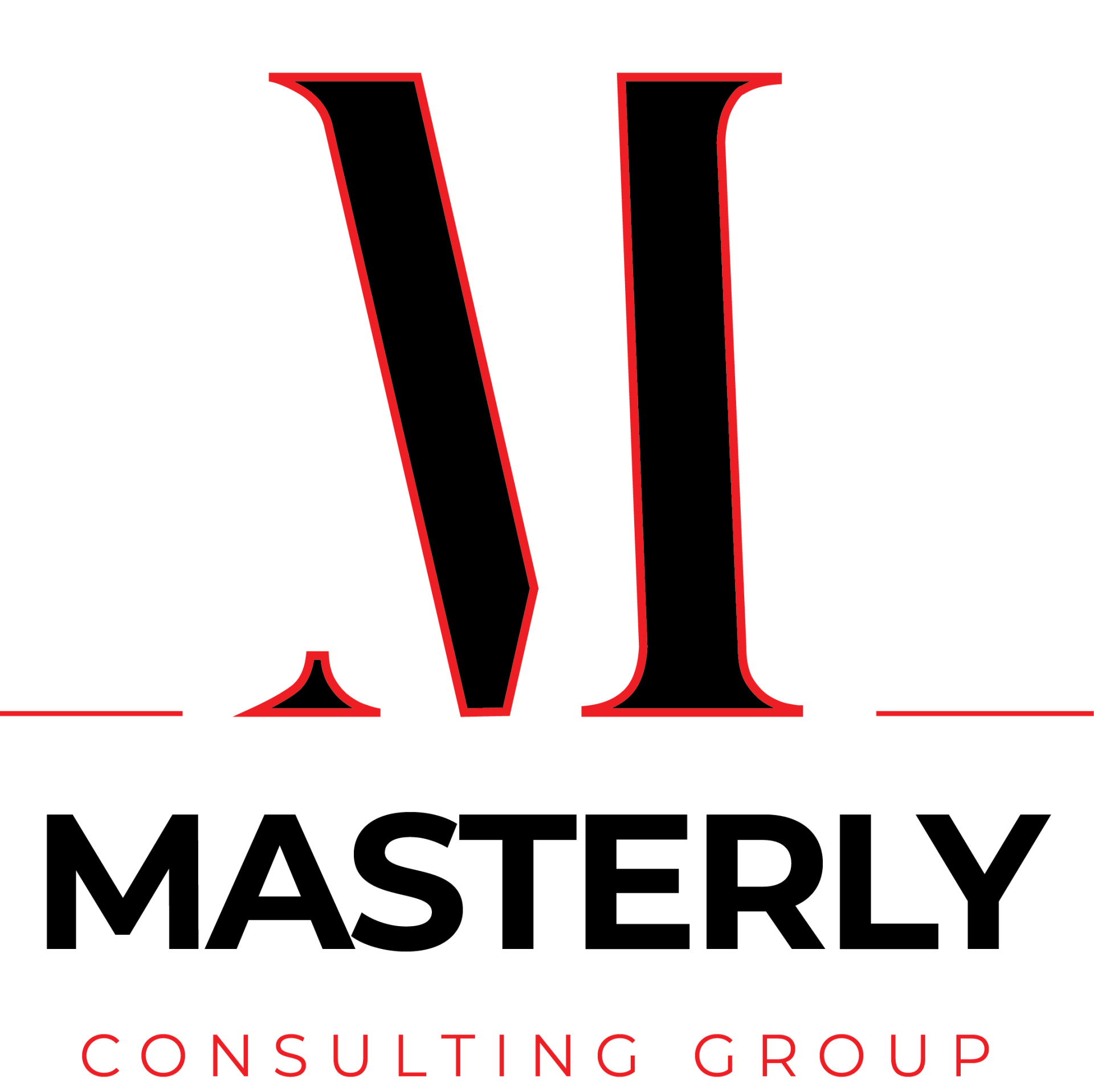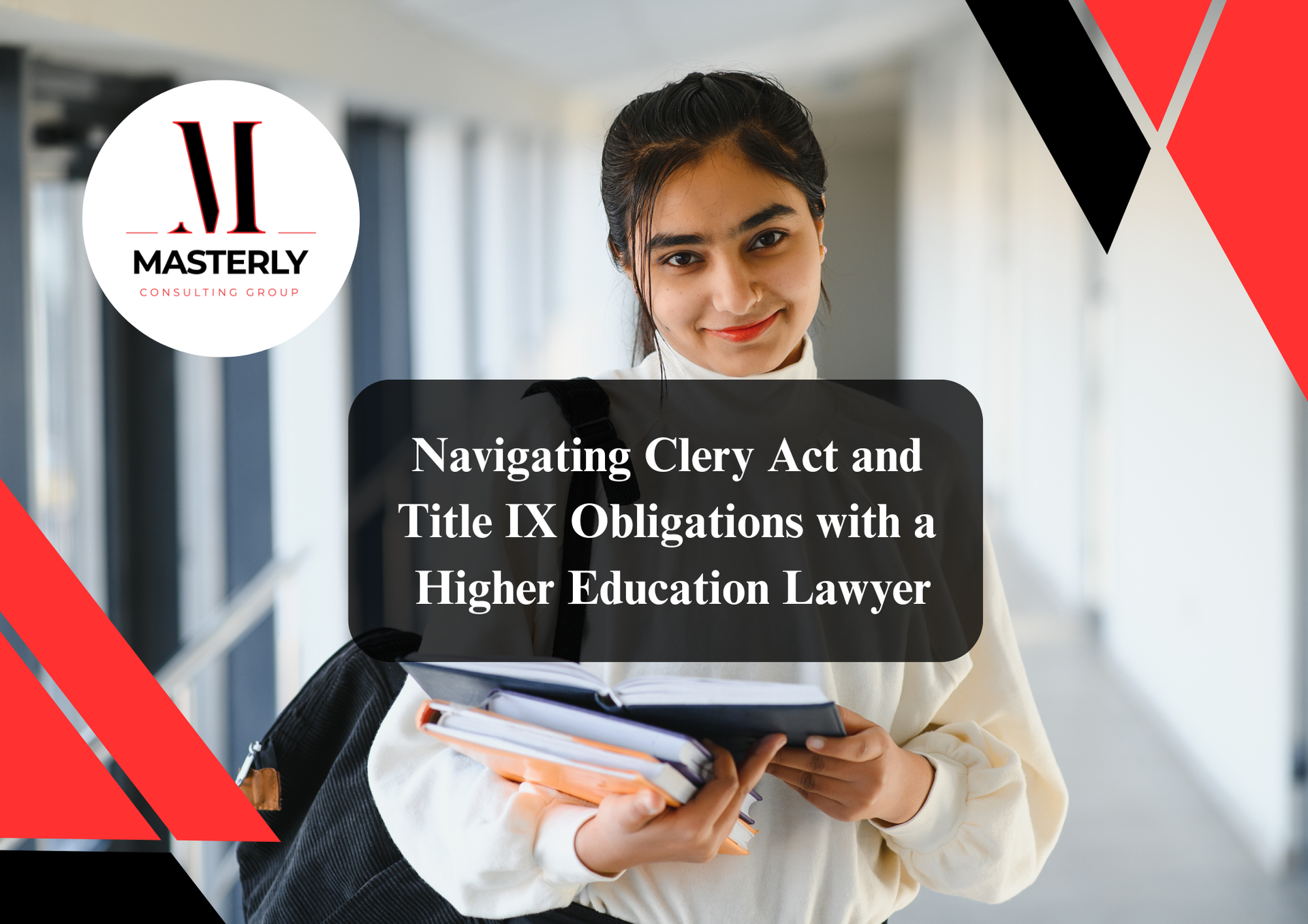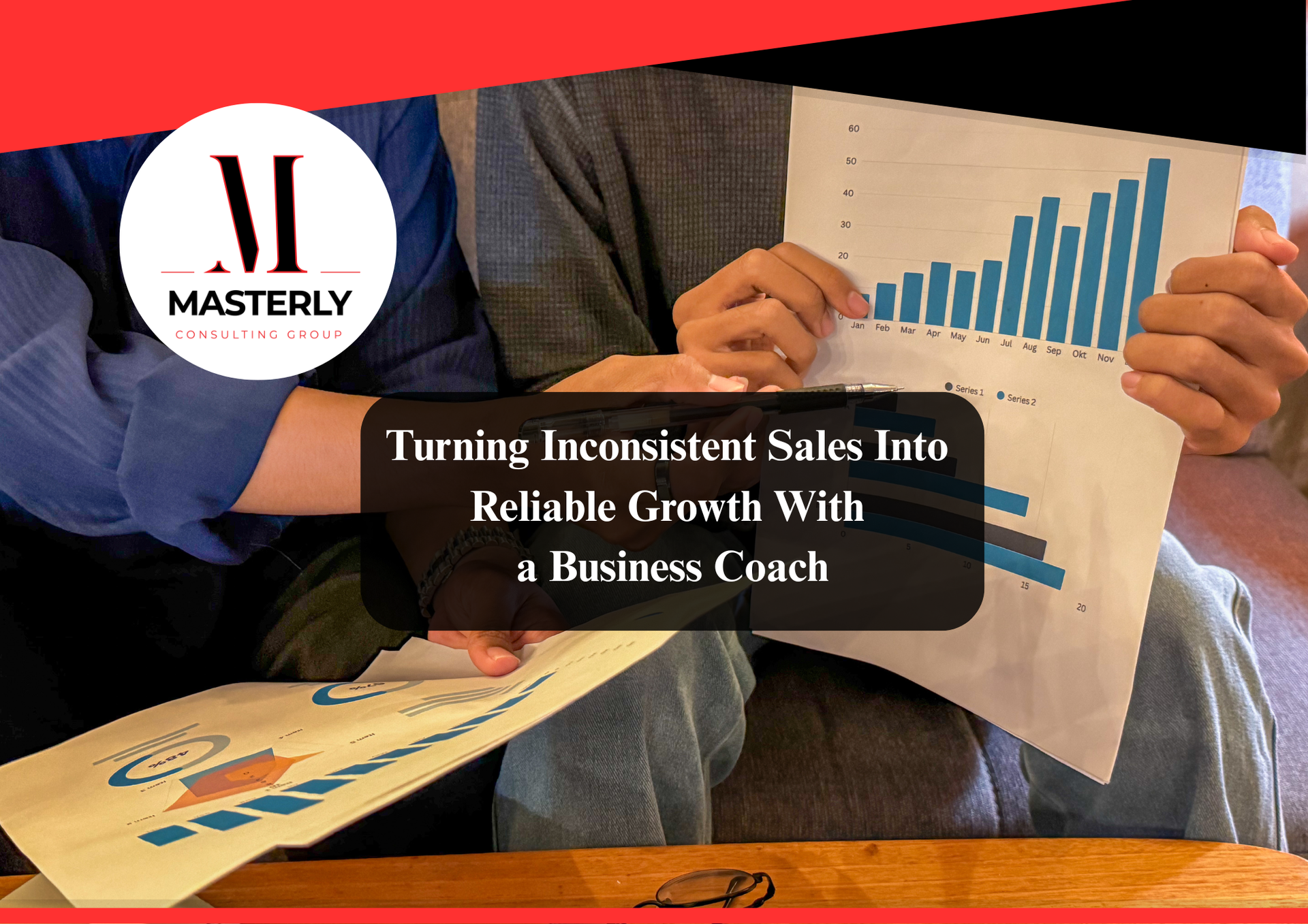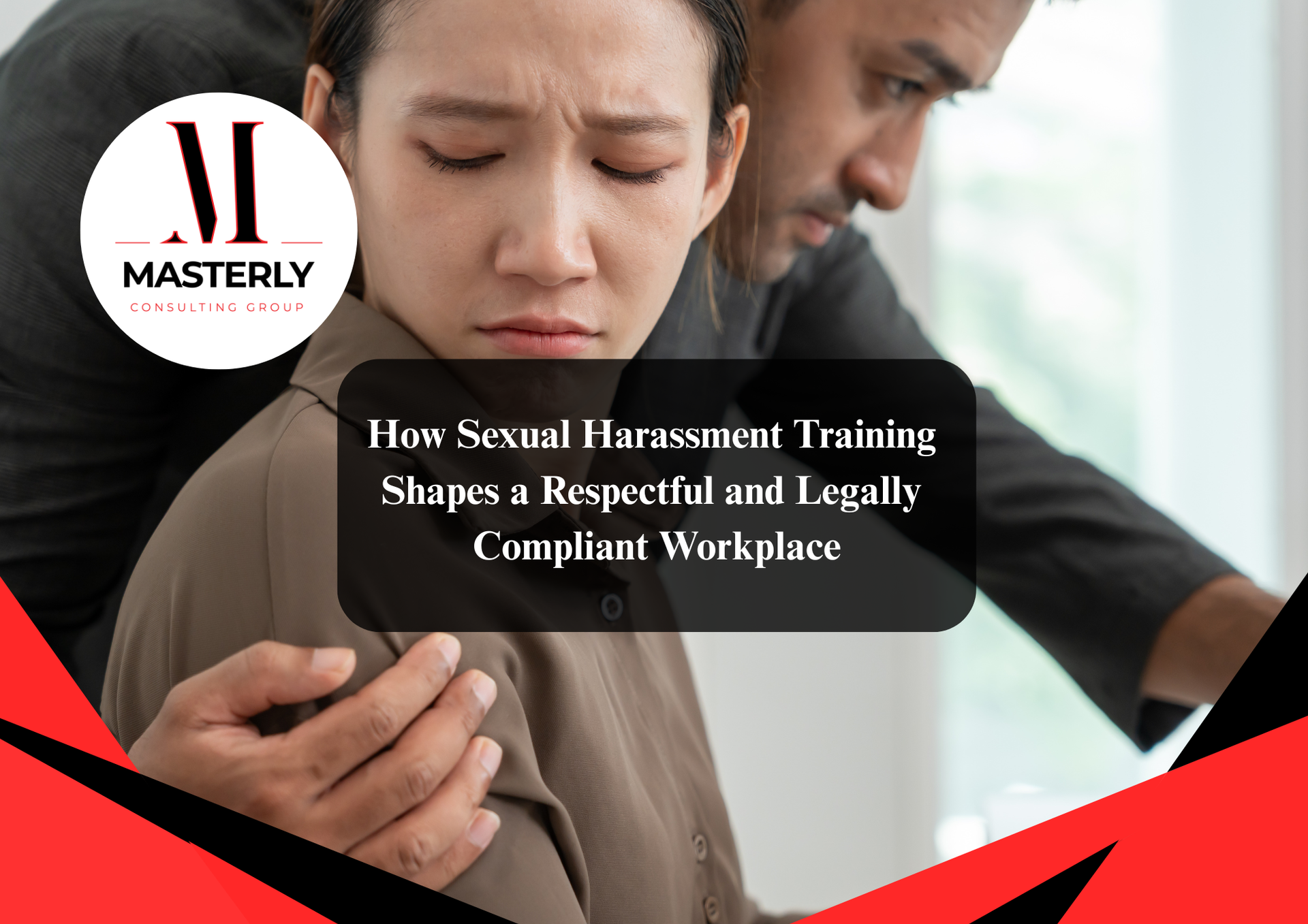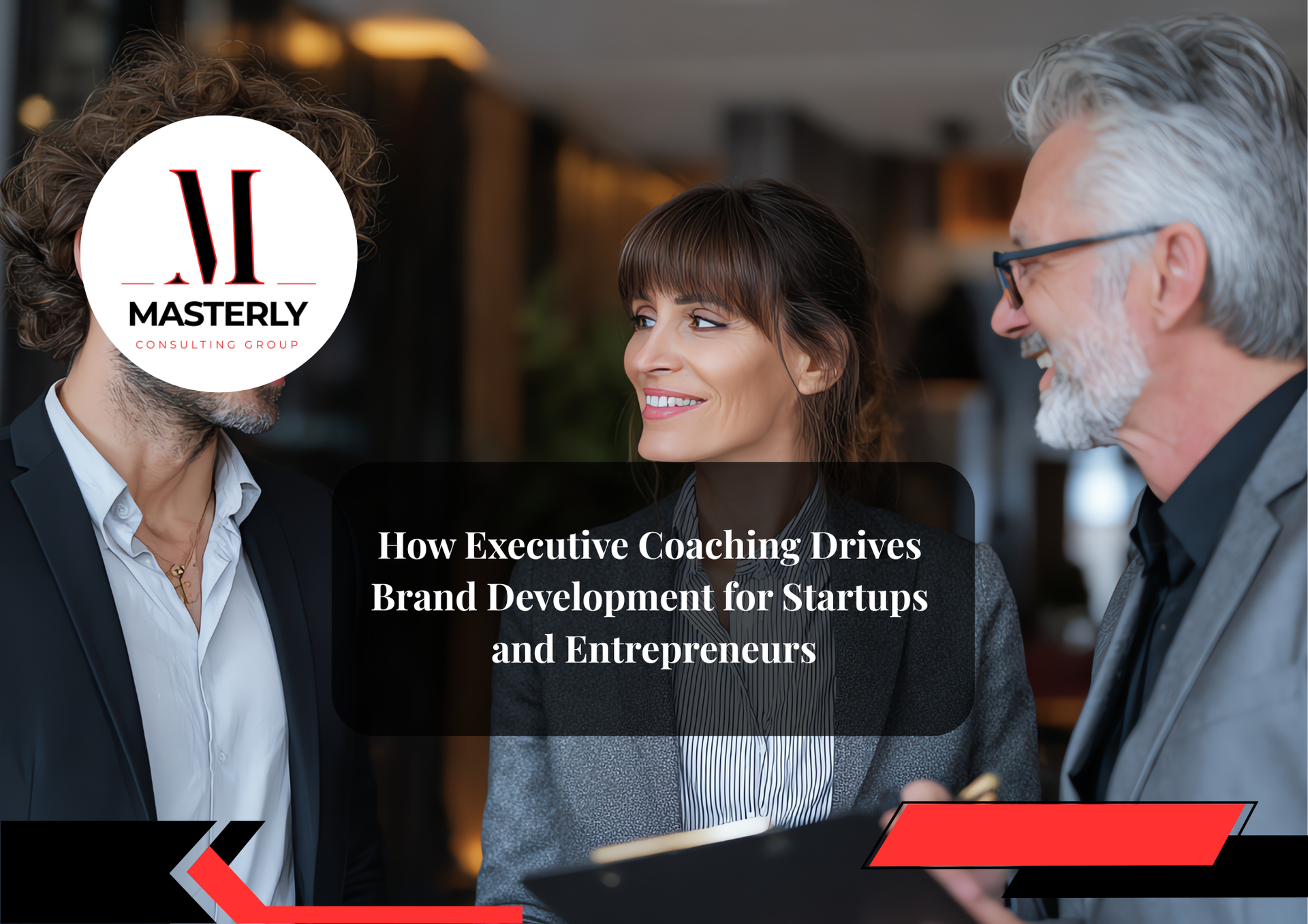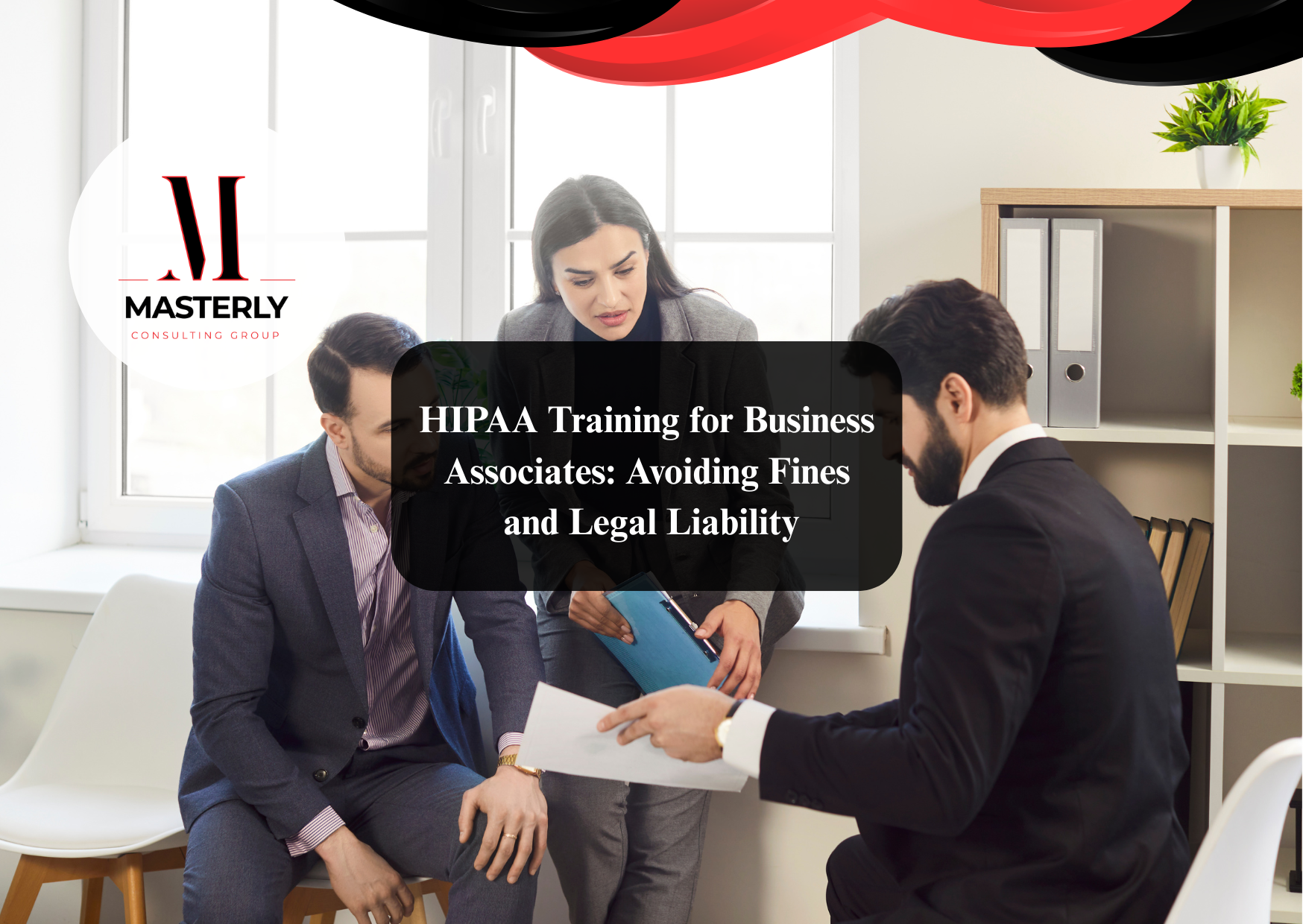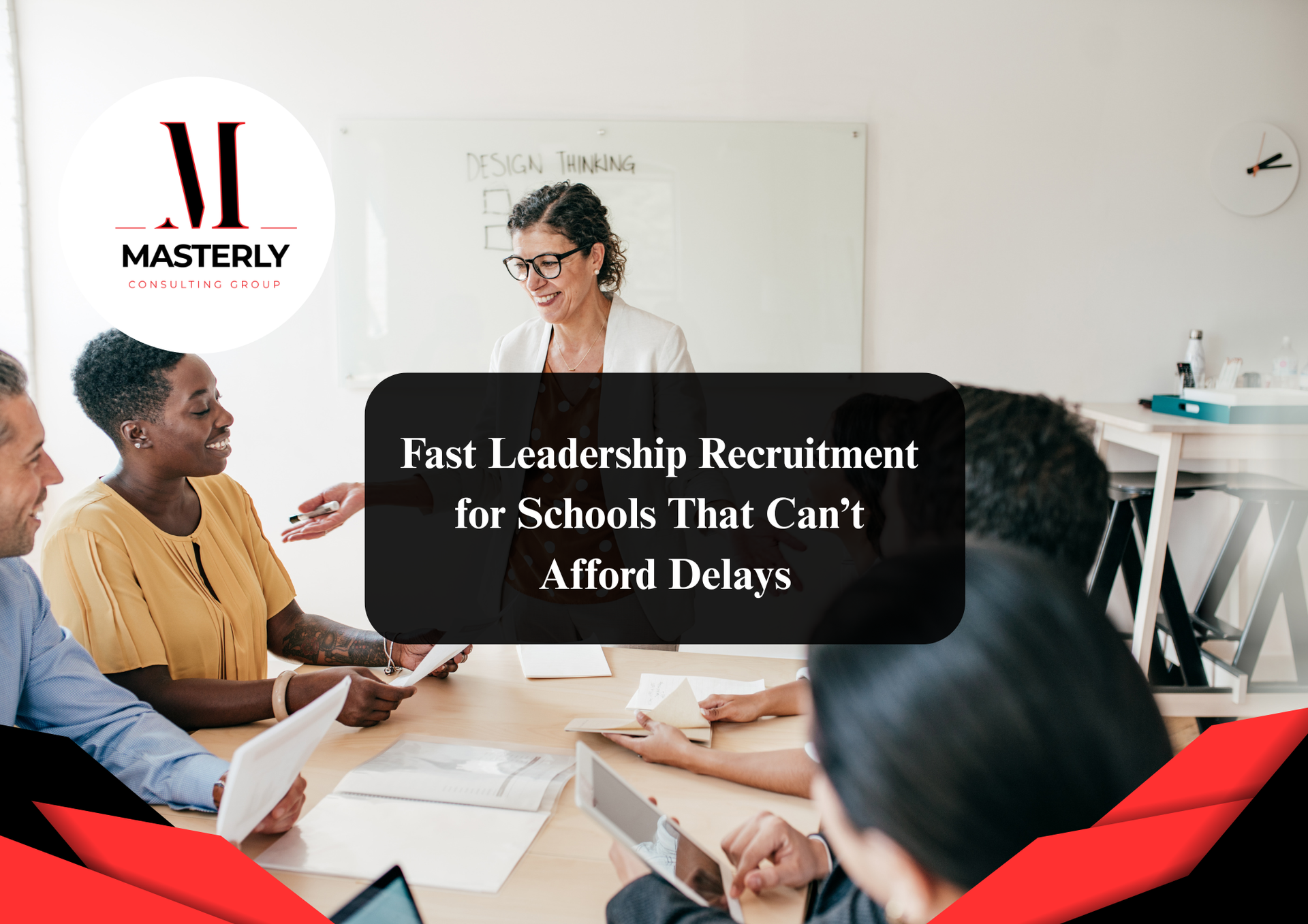How to Protect Student-Athletes and Schools Under the Expanding NIL Rules
The New NIL Landscape in High School Athletics
The world of high school NIL is rapidly transforming how schools manage their athletes and compliance policies. As new nil rules emerge across the country, high school athletes are finding opportunities to earn money from their name, image, and likeness (NIL) through sponsorships, partnerships, and digital endorsements. What started as a reform for college athletes has now reached the high school level, forcing administrators, coaches, and districts to adapt quickly.
At Masterly Legal Solutions, we understand that schools need guidance navigating this evolving field. The combination of state laws, district policies, and the influence of the National Collegiate Athletic Association (NCAA) has created an environment where compliance must come first. Every decision a school makes today will shape how its student athletes benefit—or risk losing eligibility—in the expanding NIL era.
Understanding Name, Image, and Likeness (NIL) in Schools
The concept of name, image, and likeness refers to the right of athletes to profit from their personal identity. That means high school students can now sign nil deals, promote brands on social media, and participate in legitimate business ventures—but only if they do so within their state's rules.
Unlike college sports, where the NCAA provides general regulations, high schools must follow state-specific NIL laws and district-level guidelines. These laws can differ dramatically from one state to another. For example, West Virginia, New Mexico, and South Carolina have recently enacted laws permitting high school student athletes to benefit from NIL activities under certain conditions. Meanwhile, Rhode Island, North Dakota, and New Hampshire are still refining their own nil rules for local programs.
Schools that don’t establish a clear nil policy risk confusion, mismanagement, and legal exposure. That’s why our team helps administrators design policies that align with amateurism rules, protect student athletes, and preserve fair play across high school athletics.
Protecting High School Student-Athletes from Compliance Risks
Without proper guidance, high school athletes can unintentionally violate nil rules or school policies. Many students don’t fully understand what types of nil activities are permitted—or how they might conflict with amateur status requirements for college recruitment.
Schools must take proactive steps to educate young athletes about:
- What qualifies as acceptable nil activities
- The potential impact of likeness deals on college eligibility
- How to comply with district and state laws
- Which certain categories of endorsements (like adult entertainment or prescription drugs) are strictly prohibited
The goal isn’t just to restrict high school athletes, but to protect them. As a trusted partner in higher education and athletic compliance, we help schools ensure that all parties make informed decisions before engaging in any NIL opportunity.
The Expanding NIL Rules and What They Mean for Schools
The new rules surrounding NIL are reshaping traditional definitions of amateur status. Previously, high school athletes risked disqualification from college sports if they profited from NIL opportunities. Today, many state laws permit limited NIL participation, but each jurisdiction has unique requirements.
For instance, West Virginia and South Carolina allow NIL participation under strict oversight from their high school athletic associations, while North Dakota and Rhode Island are drafting frameworks that mirror college-level compliance models. Each school must therefore review both district and state regulations to remain compliant.
At Masterly Legal Solutions, we help schools interpret these laws and design structured nil policies that balance athletic opportunity with institutional protection.
Building Strong NIL Policies for District Compliance
A well-designed nil policy ensures that both high school student athletes and school employees understand their responsibilities. Our team assists educational leaders in building policies that:
- Clearly define acceptable and prohibited nil activities
- Address the use of school logos, uniforms, and facilities in NIL promotions
- Distinguish between personal and institutional endorsements
- Outline reporting procedures for nil deals and nil agreements
- Prevent conflicts of interest involving school employees or sponsors
Each school deserves a policy that reflects its values, safeguards its athletes, and aligns with both state laws and NCAA rules.
Title IX, NIL, and the Ethics of Opportunity
The intersection of Title IX and name, image, and likeness presents new challenges for schools. Equal access to nil opportunities must be maintained regardless of gender, ensuring that both male and female student athletes have the chance to participate fairly.
Masterly Legal Solutions helps districts and high school athletic directors incorporate equality into every nil policy, promoting inclusion and preventing bias. Our experts understand that sports should remain a platform for growth and integrity—never favoritism or exploitation.
Helping Student Athletes Navigate NIL Deals Responsibly
The rise of nil deals among high school athletes brings financial and ethical questions. Many students and parents struggle to distinguish legitimate opportunities from risky partnerships. Unsanctioned agreements can jeopardize college scholarships or even lead to losing eligibility under NCAA rules.
Our consultants provide educational workshops that teach high school students how to:
- Evaluate offers and recognize red flags
- Understand tax and legal implications
- Protect their personal brand and maintain amateur status
- Avoid nil activities that violate school or state laws
By empowering student athletes with this knowledge, we ensure they protect both their reputation and future eligibility in college sports.
Understanding the Impact of NIL on Schools and Districts
The introduction of NIL doesn’t just affect student athletes—it impacts the entire school system. Administrators must now coordinate legal reviews, financial disclosures, and education programs to stay compliant. Each district must decide how to handle nil collectives, external partnerships, and third-party agents.
This complex environment demands expert oversight. Our team conducts compliance audits, offers policy refinement, and provides ongoing consultation to ensure that every school remains ahead of potential issues.
Managing NIL Activities Ethically and Legally
Schools must manage nil activities carefully to preserve integrity and compliance. Common risks include unauthorized use of school logos, conflict of interest between sponsors and school employees, and improper promotion of restricted products.
We assist schools in creating transparent approval systems for nil agreements, ensuring that each deal supports the student athlete’s best interests while aligning with district guidelines.
How West Virginia Is Leading the Way in High School NIL
Among all states, West Virginia stands out for its proactive approach to high school NIL. The state’s high school athletic association has allowed high school athletes to participate in nil activities while maintaining amateur status, setting a model for other states.
By working closely with legal experts and educational consultants, West Virginia schools are showing how effective nil policies can protect both athletes and institutions. Masterly Legal Solutions helps replicate that success for schools nationwide, ensuring every district meets the same high standards.
The Role of Parents in the NIL Era
Parents are central to guiding high school athletes through the complexities of nil deals. Many young athletes lack the experience to understand contract language, sponsorship terms, and long-term impacts on college recruitment.
We provide family-focused educational sessions to help parents evaluate opportunities and protect their children’s futures. Our team’s goal is to ensure every family involved in high school athletics makes informed, ethical, and legally sound decisions.
Maintaining Amateur Status for Future College Athletes
Maintaining amateur status is vital for prospective student athletes who hope to compete in college sports. Missteps in high school NIL can disqualify them from in state college programs or even national opportunities.
Our advisors review every potential NIL agreement to confirm compliance with amateurism rules, NCAA regulations, and applicable state laws. Protecting future college student athletes begins with careful guidance today.
NIL Rights and the Personal Brand
Beyond compliance, high school student athletes are learning the importance of their personal brand. With a growing social media presence, students have the chance to engage with audiences and develop professional images that attract sponsors.
However, protecting one’s image also means understanding the legal boundaries. Our NIL workshops teach students how to profit responsibly while preserving reputation and eligibility.
Preparing Schools for the Future of NIL
As more states introduce new rules and enacted laws, every school must be proactive. The next few years will redefine how student athletes and institutions operate within the NIL era. Schools that adapt early will benefit from fewer violations, stronger reputations, and safer programs.
Our experts stay current with national and state laws, ensuring that your district’s nil policy remains up to date and defensible.
The Importance of Continuous NIL Education
NIL education isn’t a one-time initiative—it’s an ongoing process. School employees, high school athletic directors, and student athletes all require updated training as nil rules evolve.
Masterly Legal Solutions offers continuous education programs, policy reviews, and nil compliance support that keeps your institution prepared for every change.
How Masterly Legal Solutions Supports Schools and Student-Athletes
Our mission is to protect both institutions and athletes by combining legal insight with educational empowerment. Through interactive NIL training, policy audits, and personalized consulting, we help schools minimize risk and foster ethical engagement in nil activities.
When schools partner with Masterly Legal Solutions, they gain a dedicated team that understands the balance between compliance, opportunity, and responsibility.
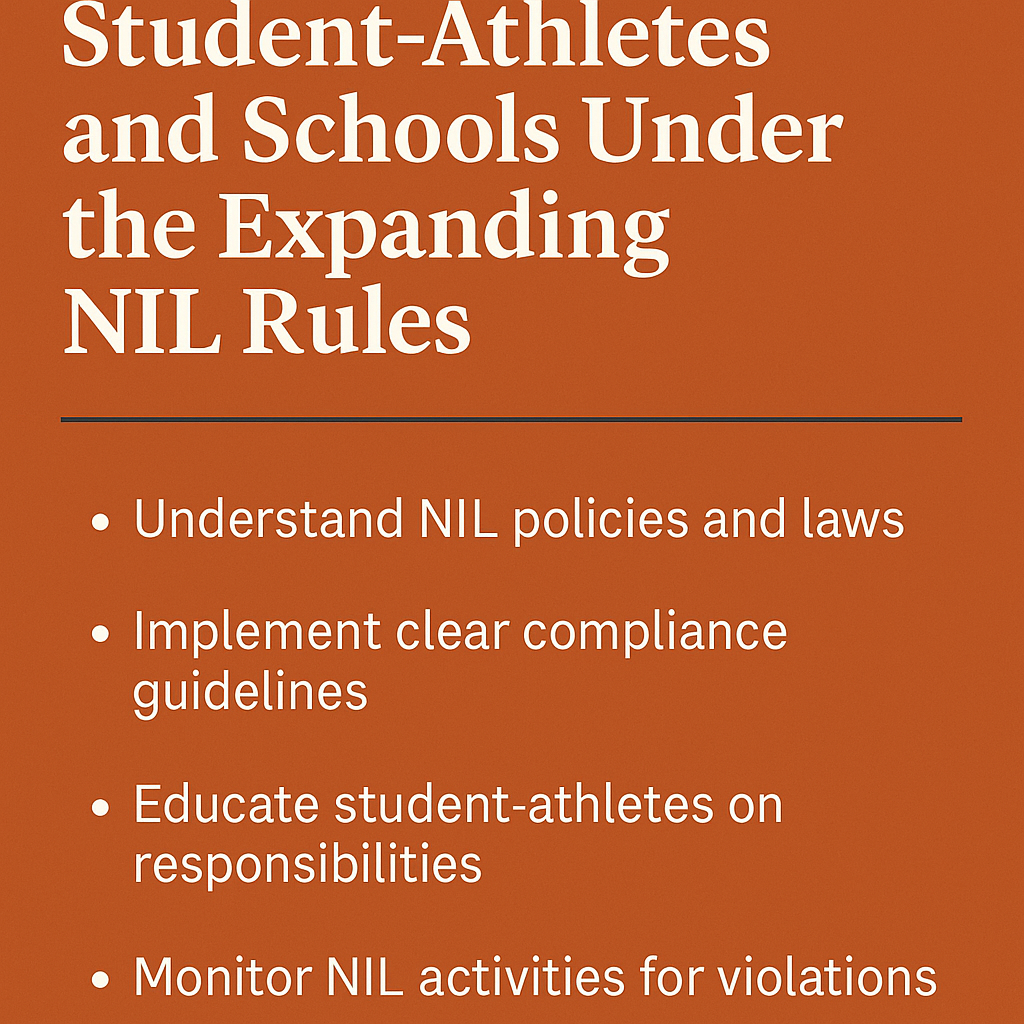
Navigating New NIL Laws Through Fair Play and Policy Alignment
The introduction of new rules and evolving nil laws has dramatically changed how high school athletes can engage with sponsorships, branding, and partnerships. What was once exclusive to college sports is now an everyday reality for younger athletes navigating their early careers. However, as more states adopt different interpretations of NIL eligibility, the role of each high school athletic association becomes increasingly important in maintaining consistency and fairness.
These governing bodies are tasked with protecting amateurism rules while supporting student opportunity under modern likeness policy frameworks. Schools must adapt quickly, ensuring policies align with both state regulations and the expectations of collegiate programs. At Masterly Legal Solutions, we help institutions interpret these legal shifts, develop compliant NIL procedures, and maintain balance between athlete empowerment and long-term eligibility protection.
Clarifying NIL Participation and Avoiding Pay-for-Play Confusion
One of the biggest challenges facing student athletes interested in NIL participation is understanding the fine line between legitimate endorsements and pay for play violations. The NIL framework was created to grant means student athletes the ability to earn income from their name, image, and likeness, not to compensate them for athletic performance. Yet, without proper education and oversight, it’s easy for high school athletes to blur that boundary.
Schools must make clear that NIL income cannot be tied to game results, team participation, or athletic achievements. At Masterly Legal Solutions, we help schools and districts design training programs and compliance materials that reinforce this critical distinction—ensuring that all NIL agreements remain ethical, compliant, and within the rules protecting true amateur competition.
Adapting to New NIL Rules and Protecting the Integrity of High School Athletics
Across the nation, high school athletes are stepping into an evolving landscape shaped by new rules, changing nil laws, and shifting definitions of what it means to maintain amateur status. As more states authorize students to engage in name, image, and likeness opportunities, it’s critical that schools understand how these policies intersect with amateurism rules and the regulations that govern college sports.
Each high school athletic association is developing its own likeness policy to ensure student participation remains compliant while protecting eligibility for future collegiate play. These frameworks vary widely, which can create confusion without proper legal guidance. At Masterly Legal Solutions, we help schools interpret these differences, align their programs with compliant standards, and protect the integrity of their athletic departments while empowering students to participate safely in the growing NIL era.
Partner With Masterly Consulting Group
In today’s fast-evolving NIL environment, hesitation can lead to compliance issues and missed educational opportunities for your school or district. At Masterly Consulting Group, our consultants work directly with high school athletic directors, administrators, and educators to design effective NIL policies, perform compliance audits, and provide hands-on NIL education that safeguards your student-athletes and your institution.
Let our experienced consulting team help you navigate every layer of NIL management—from policy development and legal alignment to strategic planning that supports your athletes’ long-term goals.
Call (888) 209-4055 to schedule your free consultation today. We collaborate with clients nationwide, helping schools build compliant, ethical, and future-ready NIL programs that protect their students and strengthen their organizations.
